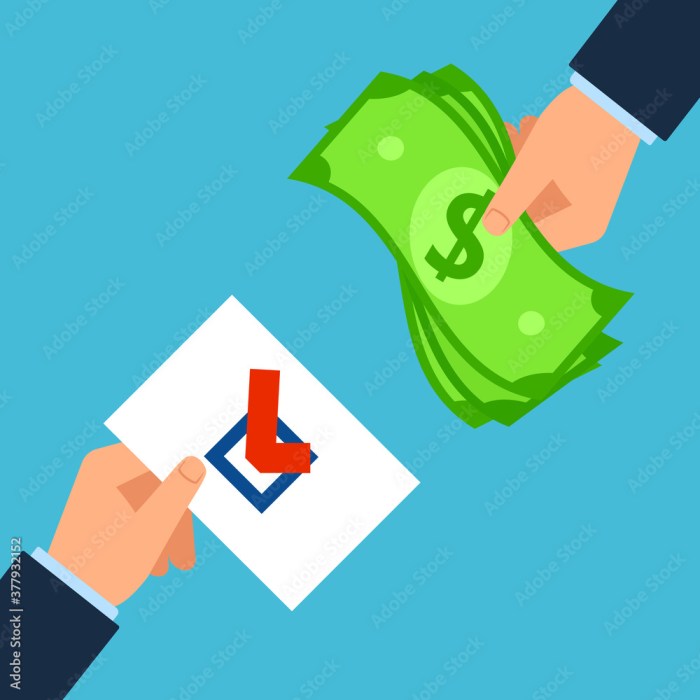How to Buy Your First Home with a Low Down Payment is an exciting journey for many first-time buyers eager to step into the world of homeownership. Navigating the intricate process of purchasing a home can feel overwhelming, especially with the financial considerations involved. With a variety of low down payment options available, understanding these choices can empower you to make informed decisions and get the keys to your dream home sooner than you think.
As we delve deeper into this topic, we’ll explore essential financial preparations, different mortgage types, and practical tips for navigating the home buying process, ensuring you’re equipped with the knowledge to tackle challenges and seize opportunities on your path to homeownership.
Understanding Low Down Payment Options
For many first-time homebuyers, the dream of owning a home can feel out of reach due to high down payment requirements. However, there are various low down payment options available that can make homeownership more attainable. These options cater to different financial situations and can help you navigate the complex real estate market with greater ease.Low down payment programs are designed to assist buyers in overcoming the financial barrier of hefty upfront costs.
Programs vary in structure, benefits, and requirements, making it crucial for buyers to understand their choices. Some of the most popular low down payment options include FHA loans, VA loans, and conventional loans with private mortgage insurance (PMI). Each of these programs has its own advantages and drawbacks, which are essential to consider before making a decision.
Types of Low Down Payment Programs
Several programs exist that enable first-time homebuyers to secure a home with minimal upfront costs. Understanding each option is vital for making an informed choice. Here are some key low down payment options:
- FHA Loans: Backed by the Federal Housing Administration, FHA loans allow buyers to put down as little as 3.5% of the purchase price. This option is particularly beneficial for those with lower credit scores.
- VA Loans: Available to veterans and active military personnel, VA loans provide 0% down payment options, making them an attractive choice for eligible buyers.
- Conventional Loans with PMI: Conventional loans typically require a 5%-20% down payment. However, some lenders offer options with as little as 3% down, often requiring PMI until the homeowner builds sufficient equity.
- USDA Loans: Designed for rural homebuyers, USDA loans offer 0% down payment options for those who meet the income requirements and are purchasing a home in eligible areas.
Benefits and Drawbacks of Low Down Payment Strategies
Utilizing a low down payment strategy can be a double-edged sword. While it can make homeownership more accessible, there are both benefits and drawbacks to consider.
- Benefits:
- Reduced upfront costs, allowing buyers to retain savings for other expenses.
- Increased market accessibility, giving first-time buyers a chance to enter the housing market.
- Potential for immediate home equity, depending on the property value appreciation.
- Drawbacks:
- Higher monthly mortgage payments due to the larger loan amount.
- Increased mortgage insurance costs, particularly with FHA and conventional loans.
- Potential for negative equity if property values decline shortly after purchase.
Eligibility Requirements for Low Down Payment Options
Different low down payment programs come with specific eligibility criteria. Understanding these requirements is crucial for prospective buyers.
| Program | Down Payment | Credit Score Requirement | Other Requirements |
|---|---|---|---|
| FHA Loans | 3.5% | 580 (or 500 with 10% down) | Steady employment, debt-to-income ratio under 43% |
| VA Loans | 0% | No minimum | Must meet service eligibility requirements |
| Conventional Loans | 3%-5% | 620 | Private mortgage insurance required for down payments under 20% |
| USDA Loans | 0% | 640 | Must be in an eligible rural area and meet income limits |
“Understanding the nuances of low down payment options can significantly impact your journey toward homeownership.”
By evaluating different low down payment options, their benefits and drawbacks, and their eligibility requirements, first-time homebuyers can better prepare themselves for the home-buying process. This knowledge will empower you to make informed decisions that align with your financial goals and homeownership aspirations.
Financial Preparation for Home Buying
Preparing financially for your first home purchase is a crucial step that can make the entire process smoother and more successful. Understanding the financial documents needed, the importance of your credit score, and the broader budget considerations will help set a solid foundation for homeownership. Here’s what you need to know to be financially ready.
Checklist of Financial Documents for Mortgage Application
Before applying for a mortgage, it’s essential to gather the necessary financial documents that lenders require. Having these documents ready will expedite the approval process and can help you avoid delays. The following checklist Artikels the typical documents needed:
- Valid identification (driver’s license or passport)
- Social Security number
- Proof of income (pay stubs, W-2 forms, or tax returns for the last two years)
- Bank statements (last two to three months)
- List of assets (savings accounts, investments, retirement accounts)
- Debt information (credit card statements, student loans, car loans)
- Proof of employment (letter from employer or recent employment verification)
Collecting these documents in advance can streamline your mortgage application and help you present a complete financial picture to lenders.
Importance of Credit Scores and Improvement Strategies
Your credit score plays a pivotal role in determining your mortgage eligibility and the interest rates you’ll receive. A higher credit score often translates to better loan terms, which can save you thousands over the life of your mortgage. To enhance your credit score before applying for a home loan, consider the following strategies:
- Check your credit report for errors and dispute any inaccuracies.
- Pay down existing debts to reduce your credit utilization ratio.
- Make all payments on time to establish a good payment history.
- Avoid opening new credit accounts before applying for a mortgage.
- Limit hard inquiries on your credit report, as they can temporarily lower your score.
Improving your credit score takes time, so starting early is advantageous. A score of 740 or higher is generally considered excellent, giving you access to the best mortgage rates.
Budget Plan for Home Buying Costs Beyond Down Payment
When budgeting for your first home, it’s crucial to account for costs that extend beyond the down payment. Preparing for these additional expenses ensures you’re not caught off guard during the buying process. Here’s a breakdown of potential costs to consider:
- Closing costs: Typically ranging from 2% to 5% of the home purchase price, these fees cover various services involved in the transaction.
- Home insurance: Required by lenders, this cost varies based on the home’s value and location.
- Property taxes: These can significantly impact your monthly budget and should be estimated based on local rates.
- Home maintenance: Setting aside funds for repairs and upkeep is essential for long-term ownership.
- Moving expenses: Don’t forget to budget for the costs associated with moving into your new home.
By preparing a comprehensive budget that includes these additional costs, you can avoid financial strain and enjoy your new home with peace of mind.
Exploring Mortgage Types

Source: webflow.com
Understanding the various mortgage types available is crucial when buying your first home with a low down payment. The right mortgage can significantly affect your financial situation, so it’s essential to compare options carefully to find what best suits your needs. Fixed-rate and adjustable-rate mortgages each present unique advantages and disadvantages, particularly for buyers who may have limited funds for a down payment.
Let’s dive deeper into these options.
Fixed-Rate and Adjustable-Rate Mortgages
Fixed-rate mortgages maintain a consistent interest rate and monthly payment over the life of the loan, making them a popular choice for first-time homebuyers seeking stability. This predictability can be advantageous for budgeting, especially when you have a low down payment. In contrast, adjustable-rate mortgages (ARMs) start with a lower interest rate that can change after an initial fixed period.
While this can save money in the short term, buyers should be cautious as rates may increase significantly over time. Here’s a comparison of both types:
- Fixed-Rate Mortgages:
-Stability in monthly payments
-Easier financial planning
-Generally higher initial rates compared to ARMs
- Adjustable-Rate Mortgages:
-Lower initial interest rates
-Potential for payment increases after the initial period
-Greater risk if market rates rise
It’s crucial for buyers to assess their risk tolerance and financial stability when choosing between fixed and adjustable rates.
Government-Backed Loans
Government-backed loans play a significant role in making homeownership accessible for individuals with low down payments. These loans are designed to encourage lending by reducing the risk for lenders. The following types are particularly noteworthy:
- FHA Loans:
-Require as little as 3.5% down payment
-Available to buyers with lower credit scores
-Mortgage insurance is typically required
- VA Loans:
-Available to eligible veterans and active-duty military members
-Often requires no down payment
-No mortgage insurance required
- USDA Loans:
-Designed for rural homebuyers with low to moderate incomes
-Requires no down payment in eligible areas
-Income limits and property location restrictions apply
Each of these options offers unique benefits and eligibility requirements, making them valuable resources for first-time homebuyers.
Choosing the Right Mortgage Lender
Selecting a mortgage lender is a critical step in the home-buying process, particularly for those working with low down payments. Lenders vary in terms of their fees, interest rates, and customer service. Here are key factors to consider when evaluating potential lenders:
- Reputation: Research lender reviews and testimonials to gauge their reliability and customer service.
- Loan Options: Ensure the lender offers various low down payment options, including government-backed loans.
- Fees and Rates: Compare interest rates and closing costs to find the most affordable option.
- Pre-approval Process: Opt for lenders who provide a straightforward pre-approval process that helps clarify your budget.
By carefully researching and comparing lenders, first-time homebuyers can secure a mortgage that aligns with their financial situation and long-term goals.
The Home Buying Process

Source: ftcdn.net
Purchasing your first home can feel overwhelming, especially when you’re aiming for a low down payment. Understanding the home buying process is crucial to making informed decisions and ensuring a smooth transaction. This section breaks down the various steps involved in buying a home, with a particular focus on the invaluable role real estate agents play throughout the journey.The home buying process typically follows a systematic approach that helps buyers navigate the complexities of the market.
From searching for properties to finalizing your purchase, each step is integral to securing your new home. Engaging with a knowledgeable real estate agent can significantly ease this process, providing you with insights, guidance, and expertise necessary to make sound choices.
The Role of Real Estate Agents
Real estate agents serve as intermediaries between buyers and sellers, and their expertise is particularly beneficial for first-time homebuyers. They help identify properties that match your criteria and guide you through negotiations. Here are some key responsibilities of a real estate agent:
- Market Analysis: Agents conduct thorough analyses of local markets to help you understand property values and trends.
- Property Showings: They arrange viewings for homes that meet your needs and schedule, ensuring you get to see potential options.
- Negotiation: Real estate agents are skilled negotiators who advocate for your best interests, aiming to secure favorable purchase terms.
- Paperwork: They assist in managing the often overwhelming documentation involved in real estate transactions, making sure everything is in order.
Conducting a Property Search
When searching for a home, it’s essential to consider various factors that will impact your living experience and investment. These factors include location, amenities, and future growth potential. A strategic approach to property searches can yield the best results. Here are the key factors to consider:
- Location: Proximity to work, schools, and public transportation can significantly influence your daily life and property value.
- Neighborhood: Researching neighborhoods can provide insights into safety, community vibe, and local amenities.
- Future Development: Investigating planned developments in the area can help you assess future property value appreciation.
- Market Trends: Understanding the real estate market trends in the area will help you determine if it’s a good time to buy.
Making an Offer and Negotiating Terms
Once you’ve found a property that meets your needs, the next critical step is making an offer. For buyers with a low down payment, negotiation becomes even more vital. Here are some tips to effectively make an offer and negotiate terms:
- Research Comparable Sales: Understanding recent sales of similar properties helps you make a competitive yet fair offer.
- Consider Your Contingencies: Including contingencies (e.g., financing, inspection) can protect your interests while negotiating.
- Be Flexible: Being open to the seller’s needs can provide leverage in negotiations, potentially leading to a better deal.
- Use Your Agent: Rely on your real estate agent’s expertise to craft an offer that reflects both your budget and the market conditions.
Post-Purchase Considerations
Purchasing a home is a significant milestone, but the journey doesn’t end with the keys being handed over. It’s crucial to understand the responsibilities that come after becoming a homeowner. Focusing on home maintenance, planning for future expenses, and building home equity are essential steps to ensure your investment grows over time.Home maintenance is not just about keeping up appearances; it directly impacts the longevity and value of your property.
Regular upkeep can prevent costly repairs down the line, making it a wise financial move. First-time buyers should also establish a robust budget to handle the recurring expenses that come with ownership. This includes property taxes, insurance, utilities, and maintenance costs, which can add up quickly if not planned for.
Home Maintenance and Future Budgeting
Understanding the ongoing costs associated with homeownership is vital. Home maintenance should be a line item in your monthly budget. Common expenses include:
- Routine upkeep like lawn care and cleaning services.
- Repairs such as plumbing or electrical issues that arise unexpectedly.
- Seasonal maintenance, such as gutter cleaning or HVAC servicing.
Creating a home maintenance schedule can help you stay on track. For instance, you might plan to check smoke detectors every six months and service your HVAC system annually. This proactive approach can save you money by catching problems early.
Allocating 1-2% of your home’s purchase price annually for maintenance can be a good rule of thumb.
Avoiding Common Pitfalls
First-time homeowners often face certain challenges once they have moved in. Some common pitfalls include:
- Underestimating the costs of repairs and maintenance.
- Failing to create an emergency fund for unexpected expenses.
- Ignoring the importance of regular maintenance, leading to larger issues later.
To avoid these pitfalls, be diligent about tracking your home’s condition and budgeting for ongoing costs. Setting aside a specific amount each month can help create a safety net for repairs that may arise.
Strategies for Building Home Equity
Building home equity is a critical aspect of homeownership and can lead to greater financial security in the long run. Here are some effective strategies:
- Make additional payments towards the principal of your mortgage. Even a small extra payment can significantly reduce interest over time.
- Consider refinancing your mortgage at a lower interest rate when possible. This can lower your monthly payments and allow you to pay off your home faster.
- Invest in home improvements that can increase the value of your property, such as remodeling your kitchen or adding energy-efficient features.
By following these strategies, homeowners can gradually increase their equity, thereby enhancing their financial position for future needs or investments. For example, if you bought a home for $300,000 and made improvements that raised its value to $350,000, your equity would increase significantly, providing more opportunities for leveraging that value in the future.
Last Point

Source: ftcdn.net
In conclusion, buying your first home with a low down payment can be a rewarding experience filled with both challenges and opportunities. By understanding your options, preparing financially, and making informed choices throughout the buying process, you can set yourself up for success. Remember, the journey doesn’t end at the closing table; being proactive in maintaining your home and building equity will contribute to your long-term financial health and happiness.
FAQ Insights
What is a low down payment?
A low down payment typically refers to a payment that is less than the standard 20% of the home’s purchase price, making homeownership more accessible for many buyers.
Are there specific loans for low down payments?
Yes, various loan programs like FHA, VA, and USDA loans are designed to offer low down payment options for eligible buyers.
Can I negotiate my down payment amount?
While the down payment is typically set by the lender’s requirements, some negotiations can occur, especially if you qualify for specific programs.
How does my credit score affect my down payment?
A higher credit score can improve your mortgage terms, potentially allowing for a lower down payment and better interest rates.
What other costs should I consider besides the down payment?
In addition to the down payment, buyers should budget for closing costs, home insurance, property taxes, and ongoing maintenance expenses.











![Best RV Portable Waste Tank [2020] | Top Motorhome Reviews](https://money.narasi.tv/wp-content/uploads/2025/06/BestPicks-120x86.png)



